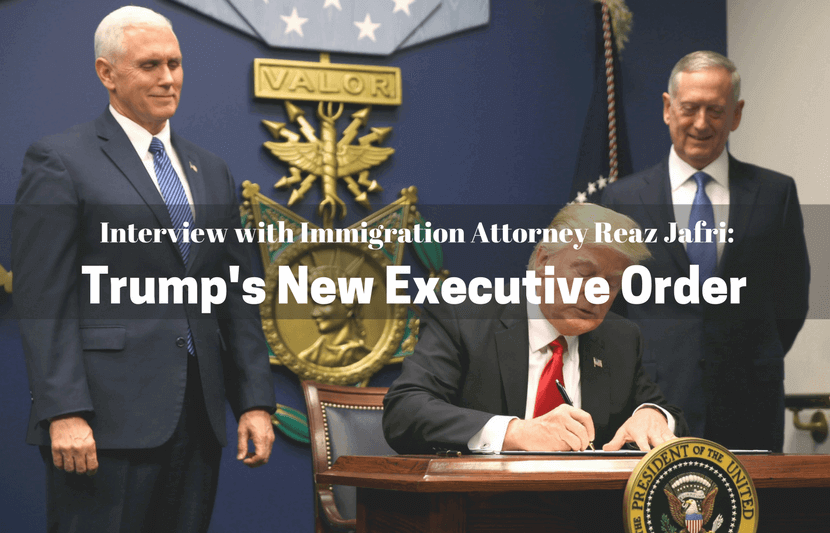Since President Trump’s executive order entitled “Protecting the Nation From Foreign Terrorist Entry Into the United States” was issued on January 27, 2017, a cloud of uncertainty has descended on U.S universities. Foreign-born, Muslim college students are beginning to wonder what they should be doing and if they will be able to return home when the academic year ends in May. What should they do? The University Network (TUN) sat down with prominent immigration attorney Reaz Jafri, Partner and Head of Immigration at Withers Bergman LLP, to find out.
[divider]
TUN: What advice would you give to foreign-born, Muslim college students and faculty in the United States who will be traveling soon?
RJ: My advice to Muslim students and teachers who are in the United States from one of those seven countries would be: unless you are a U.S. citizen, do not travel out of the country. Even those with green cards should check with current rules before traveling. We will see what rules the administration puts out, but for the next 90 days, I would not travel out of the country. Given the uncertainty, avoid travel and do not put your status at risk. When classes end in April or early May, instead of going home, students should think about a summer internship, or even summer classes, and stay in the U.S.
[divider]
TUN: What advice would you give to the foreign-born, Muslim college students who are in the country?
RJ: For now, if you’re in the United States, you’re okay because you have status, although there is talk about visas – including student visas – being canceled, so check with your school’s Office of International Students. Avoid ANY situation where you can have a run in with the law. For example, let’s say you are at a party with underage drinking that breaks up. A lot of college students will go to bars with fake IDs. If you’re a foreign student – especially from one of the affected counties – you may find yourself in a heap of trouble. Can they remove you from the U.S. for something as low-grade as a fight at a party? Probably, so I would avoid any run ins with the law.
[divider]
TUN: Mercedes Badia-Tavas of the Chicago Chapter of the American Immigration Lawyers Association was recently quoted as saying (while discussing the recent risk involved in traveling for some), “That’s the problem when you don’t have clear instructions on how you implement the order. Everyone shoots in the dark and they start detaining everyone.” How would you respond?
RJ: I agree with her, and I’ll add that what the order is doing is putting out these prohibitions, restrictions and law enforcement type of rules without any guidance of what they mean and are not very well thought out. A lot of the power to enforce these laws and rules is being given to people who are not properly trained to interpret laws and therefore properly execute the orders. A local police officer or a border patrol officer will not necessarily be trained to distinguish between a low grade violation, such as shoplifting, and a more serious crime and therefore, they are going to enforce the law as they see fit. I don’t think they are going to detain everyone, but I think they are going to detain some people who shouldn’t be detained. Some people who should be detained will probably just slip through and immigrate. Detention means that you come into this country and you are held from entering. One of two things happen when you’re detained – you’re either allowed entry or you’re sent back. It’s the people who are sent back who have the real problem, and we saw a lot of that over the weekend. The other risk is that people who are overseas on student visas won’t be allowed to board airplanes.



